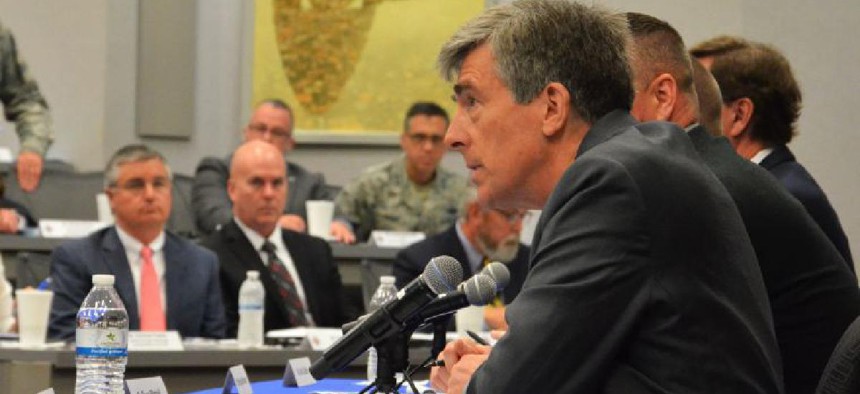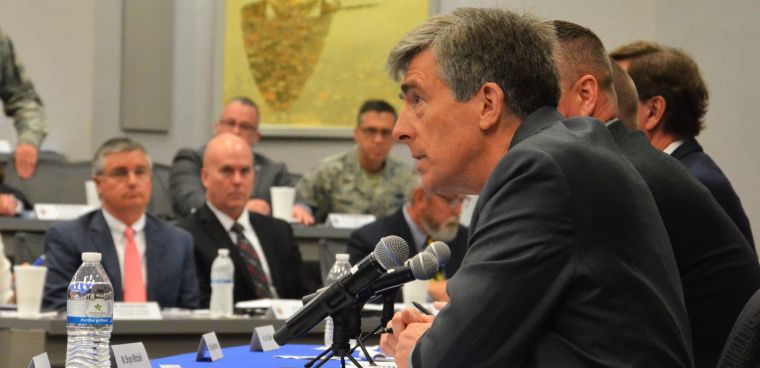National cyber director backs new Bureau of Cyber Statistics

The White House is still considering whether to support the Cyberspace Solarium Commission's recommendation to establish a Bureau of Cyber Statistics, National Cyber Director Chris Inglis said on Monday, while stressing the urgent need for the federal government to begin assessing and publishing data on cybersecurity incidents.

Chris Inglis at a cybersecurity event at the U.S. Naval Academy in May 2018. (U.S. Air Force photo by Maj. John Quinlan)
The White House is still considering whether to support the Cyberspace Solarium Commission's recommendation to establish a Bureau of Cyber Statistics, National Cyber Director Chris Inglis said on Monday, while stressing the urgent need for the federal government to begin assessing and publishing data on cybersecurity incidents.
Inglis, who served as a member of the Solarium Commission and was confirmed by the Senate in June as the first White House national cyber director, said the U.S. response to cyberattacks would become increasingly "episodic" and "perhaps less optimal" without a Bureau of Cyber Statistics. The Bureau would be tasked with regularly publishing data and analyzing cybersecurity incidents from organizations who report that information to the Department of Homeland Security, where the bureau would be established.
"While the White House does not yet have an official policy" on the Bureau of Cyber Statistics, Inglis said, "I think all would agree that in the absence of this information, we are going to be episodic, we are going to be uneven and perhaps less than optimal in our response to any of these threats which affect all of us in common."
He added: "To properly address risk, we have to first understand it, we have to understand where it's concentrated, where it cascades, what causes it, and more importantly to then discover how to address it. The Bureau of Cyber Statistics would do just that."
The Cyberspace Solarium Commission recommended the Bureau of Cyber Statistics collect data from cyber firms which provide security resources and incident response services to U.S. companies at least twice a year as determined by the director.
Inglis' remarks at an Atlantic Council event on Aug. 2 were made just days after senators introduced legislation that included the establishment of the bureau at DHS.
The Defense of United States Infrastructure Act was introduced by co-chair of the Cyberspace Solarium Commission Sen. Angus King (I-Maine), along with Sen. Ben Sasse (R-Neb.) and Sen. Mike Rounds (R-S.D.).
Inglis, who previously served under former Presidents George W. Bush and Barack Obama as deputy director of the National Security Agency, was confirmed to his position this year. The role of a White House-based cyber coordinator was scrapped by the Trump administration under former National Security Advisor John Bolton, but the role was restored with some changes by Congress.



